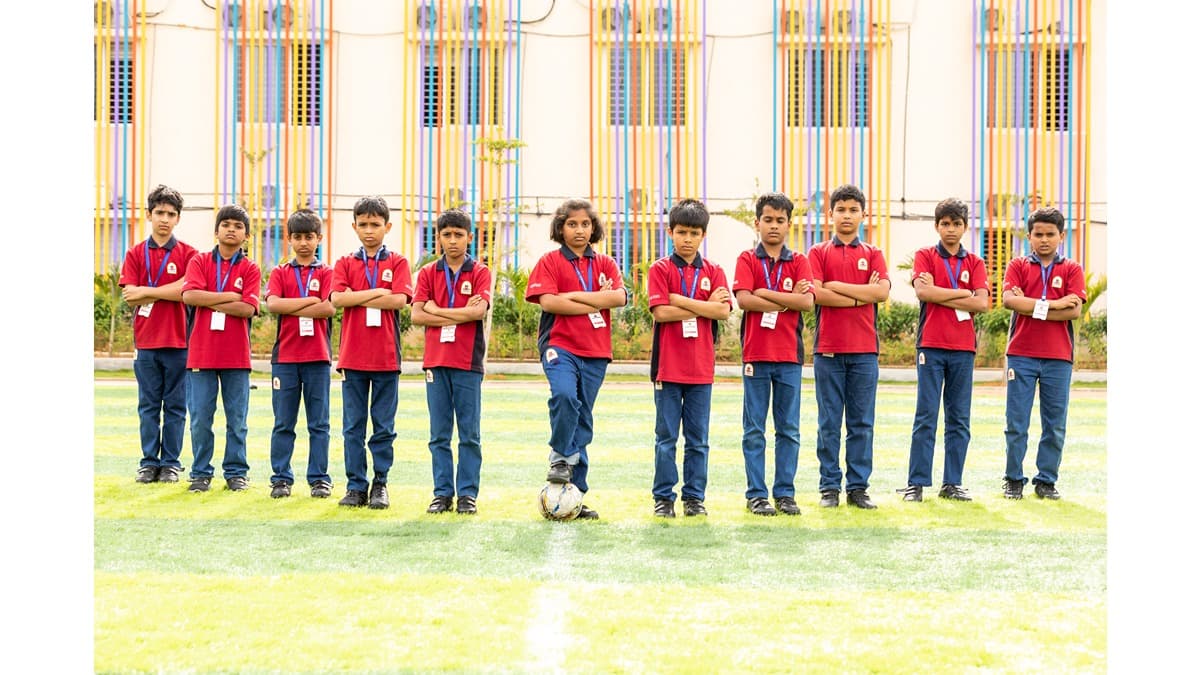Combating Sedentary Lifestyles: Infusing Active Breaks and Movement into the Indian School
By Harshitha |
Date 05-09-2023

Table of Contents
Admissions Open for
In the bustling realm of Indian education, where academic rigor often takes precedence, the sedentary lifestyle among students has become a growing concern. The modern era’s technological advancements and changing lifestyles have contributed to prolonged periods of inactivity, leading to various health issues. This article delves into the pivotal role of integrating active breaks and movement within the school day, highlighting how this approach not only counters sedentary habits but also cultivates a culture of holistic well-being and enhanced learning.
Unveiling the Sedentary Lifestyle Epidemic in India
The rapid pace of urbanization and the allure of screens have led to a sedentary lifestyle epidemic in India, particularly among the younger generation. Extended hours spent sitting, both at school and home, contribute to a range of health concerns, including obesity, cardiovascular issues, and musculoskeletal problems. Recognizing the urgency of addressing this crisis, schools are embracing innovative strategies to incorporate physical activity into the daily routine.
The Significance of Active Breaks and Movement
Boosting Physical Health: Incorporating active breaks and movement sessions within the school day provides students with a much-needed opportunity to stretch their muscles, improve circulation, and enhance cardiovascular fitness. These short bursts of activity help counter the detrimental effects of prolonged sitting and contribute to overall physical health.
Enhancing Cognitive Function: Physical activity isn’t just beneficial for the body; it also positively impacts cognitive function. Active breaks stimulate the brain, improving concentration, memory retention, and problem-solving skills. As students engage in movement, they experience increased oxygen flow to the brain, fostering an environment conducive to effective learning.
Integrating Active Breaks: From Theory to Practice
Creative Approaches: Schools are exploring creative ways to incorporate active breaks. From brief dance sessions, yoga stretches, to quick outdoor games, these breaks infuse energy and fun into the school day. Teachers and students alike benefit from the renewed vigor and enhanced focus that follow.
Mind-Body Connection: Active breaks also nurture the mind-body connection. Practices like mindfulness, deep breathing, and gentle stretches provide moments of relaxation and stress relief, enhancing students’ emotional well-being and resilience.
A Holistic Approach to Student Well-being
The integration of active breaks and movement goes beyond addressing physical health; it embodies a holistic approach to student well-being. Schools that prioritize movement recognize that education encompasses not only academic excellence but also the development of healthy habits and life skills. By instilling the value of physical activity from a young age, schools lay the foundation for a generation that understands the importance of maintaining a balanced and active lifestyle.
Conclusion
Combating sedentary lifestyles among students in India demands a concerted effort from schools. Active breaks and movement sessions serve as crucial tools in this endeavor, fostering physical health, enhancing cognitive function, and nurturing holistic well-being. As the education landscape evolves, schools that prioritize active breaks demonstrate their commitment to creating well-rounded individuals who are not only academically adept but also empowered to lead healthy and fulfilling lives. By infusing movement into the school day, India’s education system takes a significant step towards building a healthier, more active future for its students.
Other Related Sections
NCERT Solutions | Sample Papers | CBSE SYLLABUS| Calculators | Converters | Stories For Kids | Poems for Kids| Learning Concepts | Practice Worksheets | Formulas | Blogs | Parent Resource
CBSE Schools In Popular Cities
- CBSE Schools in Bangalore
- CBSE Schools in Mumbai
- CBSE Schools in Pune
- CBSE Schools in Hyderabad
- CBSE Schools in Chennai
- CBSE Schools in Gurgaon
- CBSE Schools in Kolkata
- CBSE Schools in Indore
- CBSE Schools in Sonipat
- CBSE Schools in Delhi
- CBSE Schools in Rohtak
- CBSE Schools in Bhopal
- CBSE Schools in Aurangabad
- CBSE Schools in Jabalpur
- CBSE Schools in Jaipur
- CBSE Schools in Jodhpur
- CBSE Schools in Nagpur
- CBSE Schools in Ahmednagar
- CBSE School In Tumkur

Call Us to know more about Orchids
Swipe Up

















